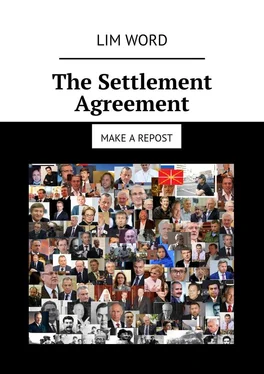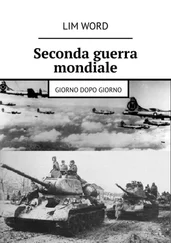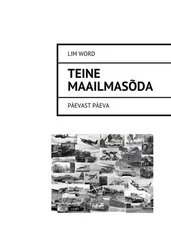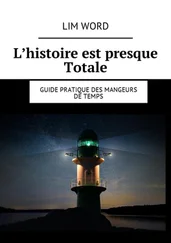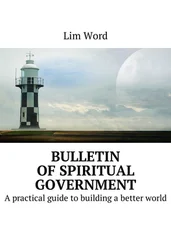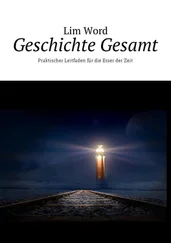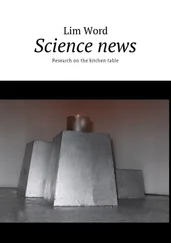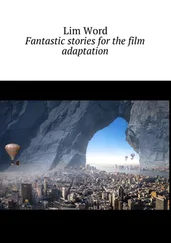Lim Word - The Settlement Agreement. Make a repost
Здесь есть возможность читать онлайн «Lim Word - The Settlement Agreement. Make a repost» — ознакомительный отрывок электронной книги совершенно бесплатно, а после прочтения отрывка купить полную версию. В некоторых случаях можно слушать аудио, скачать через торрент в формате fb2 и присутствует краткое содержание. ISBN: , Жанр: Публицистика, Справочники, Прочая документальная литература, на английском языке. Описание произведения, (предисловие) а так же отзывы посетителей доступны на портале библиотеки ЛибКат.
- Название:The Settlement Agreement. Make a repost
- Автор:
- Жанр:
- Год:неизвестен
- ISBN:9785449070548
- Рейтинг книги:3 / 5. Голосов: 1
-
Избранное:Добавить в избранное
- Отзывы:
-
Ваша оценка:
- 60
- 1
- 2
- 3
- 4
- 5
The Settlement Agreement. Make a repost: краткое содержание, описание и аннотация
Предлагаем к чтению аннотацию, описание, краткое содержание или предисловие (зависит от того, что написал сам автор книги «The Settlement Agreement. Make a repost»). Если вы не нашли необходимую информацию о книге — напишите в комментариях, мы постараемся отыскать её.
The Settlement Agreement. Make a repost — читать онлайн ознакомительный отрывок
Ниже представлен текст книги, разбитый по страницам. Система сохранения места последней прочитанной страницы, позволяет с удобством читать онлайн бесплатно книгу «The Settlement Agreement. Make a repost», без необходимости каждый раз заново искать на чём Вы остановились. Поставьте закладку, и сможете в любой момент перейти на страницу, на которой закончили чтение.
Интервал:
Закладка:
Boris Nikolaevich dies in 2007, from cardiac arrest. To many, very many, the time of its voluntary exile (2000—2007) is now remembered as the golden age of the “zero” ones.
Private life. His wife is Anastasia (from the age of 25, officially Naina) Yosefovna Yeltsin (Girin), since her studies at the institute, two daughters.
2. Vladimir Putin. Birth – 1952, Leningrad, … life in a communal apartment without amenities… studying in a special school with a chemical bias on the basis of a technological institute. Continuing education, since 1970 – Law Faculty of Leningrad State University (acquaintance with its associate professor, Anatoly Sobchak), distribution to the State Security Committee (KGB). Work in the investigative department of the Leningrad KGB (5th Directorate, the fight against “ideological sabotage”), after retraining – a trip to Dresden (formal position – Director of the Dresden House of Friendship of the USSR-GDR). After the unification of Germany and, in fact, the loss of the meaning of further work under cover, Putin submits a report on dismissal from the KGB of the USSR (1991). The new place of service is the rector’s office of Leningrad State University, and also the Leningrad-Petersburg City Hall. Vladimir Putin’s terms of reference are the organization of the currency exchange in the Northern Capital, attracting investments, and much, much more. In 1995, VVP, already an official deputy mayor of Petersburg, heads the regional branch of the party “Our House – Russia”. Simultaneously, V.P. passes training on the program of the American National Democratic Institute of International Relations (NDI); created by the US government to “promote democracy in developing countries” (through the appropriate training of “reformist political activists”).
In 1997, V. Putin defended the thesis of candidate of economic sciences (something about planning the reproduction of the region’s mineral and raw materials base). Later it turns out (information is not verified in independent sources thoroughly) that 16 of the 20 key pages of V.P.P.‘s work have been compiled from the articles of the textbook “Strategic Planning and Politics” by professors-analysts of Pittsburgh University (USA). The main theme here is, as if – the merger of the leading corporations (“national champions”) with the vertical of power, and the implementation of state policy.
In 1996, Vladimir Putin holds the post of deputy administrator of the affairs of the President of the Russian Federation (Pavel Borodin), and later the head of the Main Control Directorate of the President of the Russian Federation. Since July 1998 V.P. becomes director of the Federal Security Service (FSB).
At 12 o’clock in the afternoon, 1999, the incumbent head of state Boris Yeltsin appoints Vladimir Putin as his successor (vice-president of the Russian Federation).
Since the beginning of zero, the country is filled with petrodollars. The price of oil rises from $ 20 in 2000 to $ 140 in 2008 (that is, 7 times). At the same time, the economic development curve in general is clearly repeating the rise in GDP growth rates of the country from 1997 to 2000. (with a short-term failure from GKOs). Thus, the successes (or failures) of President Putin’s economic policy are completely masked by the flow of free oil money. In general, the real average income of citizens from 2000 to 2013 is doubled ($ 17,500 per year): it’s true.
One of the first universally recognized successes of Vladimir Vladimirovich is the tax reform. The number of different taxes is reduced by 3, 6 times – from 54 to 15. The budget is filled with more budget. A social explosion (rising raw material prices is too obvious for everyone) is prevented.
On December 1, 2001, the Unity movement, the election blocs “Fatherland – All Russia” and “Our Home – Russia” merge into a single liberal-conservative political party, “United Russia”. Interestingly, the words-antonyms “liberalism” and “conservatism” are somehow united in one. Giant all-embracing party like the CPSU uses the administrative apparatus of the state, and its financial apparatus, to achieve its own (not necessarily coincident with the wishes of the people) goals. Putin is not directly a member of the union, but so-called. EdRo is focused on supporting this particular leader. Some points of the original Manifesto of the Party are interesting:
…By 2008, each family will have its own comfortable housing, worthy of the third millennium, regardless of the level of today’s income.
…In 2005 every citizen of Russia will receive his share from the use of natural resources of Russia
…By 2010 the transport highway St. Petersburg-Anadyr, Tokyo-Vladivostok-Brest and other
…By 2017, Russia will be the leader of world politics and economy.
Later this (already sent to the regions) document as it is obscured. Only classical is expressed, expressed by numerous vague phrases “Path of National Success” (2003). A characteristic phrase: “… The modern accounting approach to the economy must give way to strategic planning, the ability to see the economic perspective and unite the country’s efforts around the real points of economic growth.”
In December 2004, V. Putin abolished direct elections of heads of regions. Somehow he links this one-person unconstitutional decision with the tragedy in Beslan (the capture of the children’s school by Chechen terrorists). In April 2013, following the order of V.P.P.‘s successor, Dmitry Medvedev, the election of governors “returns”, but it turns out that the regional parliaments “voluntarily” renounce them. By April 2006, 66 out of 88 regional leaders became members of the pro-presidential United Russia party.
Simultaneously, the transition to elections to the deputies of the State Duma is carried out exclusively on party lists. Self-nominees from single-mandate constituencies, which, for example, enjoy serious support from the people on the ground, independent of the “corporate ethics” of this or that party, can not be found in the State Duma. Only the party apparatchiks remain – or people taken solely for “beauty” (boxers, gymnasts, actors, etc.).
The number of officials at different levels, from 2000 to 2008. (including state corporations licensing, registering and controlling bodies) is increased 2.2 times, to almost 2 million people. To pay for their work, they spend about 1.2 trillion. rubles annually. The main problem, however, is not the number, and not the high salaries (the deputy minister in the RF officially receives 106 minimum wages, in Europe, civil servants of this level – 3—4). The main thing is that the Russian official is installed on the fact that he is simply obliged to prohibit something, not to cultivate, and to promote a useful work.
In 2013, in response to the “Magnitsky list”, which freezes foreign accounts of the figures of the Ministry of Internal Affairs, the Federal Antimonopoly Service, the Federal Tax Service, the Arbitration Court and the Prosecutor General’s Office, involved in frauds with money laundering and the murder of lawyer S. Magnitsky with the pre-trial detention center, n. “The law of Dima Yakovlev.” The countries of the USA and Western Europe are deprived of the right to adopt Russian children (whom no one else in the Russian Federation wants to take) children.
The law is given the name of a Russian boy who died in the US as a result of a tragic accident. Meanwhile, from 1991 to 2006 in Russia 92 thousand children were adopted, in North America and Western Europe – 160 thousand. In Russian families only 1,202 children die in official statistics (not taking into account the lethal outcome of various diseases) during this period. In addition, in the USA and Europe, “refuseniks” are usually seriously ill, disproportionately better medical care (survival is three times higher). Thus, all those people who are involved in the enactment of the law of Dima Yakovlev (in a society known as the “Law of King Herod”) are the cause of the painful death of at least 400 (chained to hospital beds) children per year.
Читать дальшеИнтервал:
Закладка:
Похожие книги на «The Settlement Agreement. Make a repost»
Представляем Вашему вниманию похожие книги на «The Settlement Agreement. Make a repost» списком для выбора. Мы отобрали схожую по названию и смыслу литературу в надежде предоставить читателям больше вариантов отыскать новые, интересные, ещё непрочитанные произведения.
Обсуждение, отзывы о книге «The Settlement Agreement. Make a repost» и просто собственные мнения читателей. Оставьте ваши комментарии, напишите, что Вы думаете о произведении, его смысле или главных героях. Укажите что конкретно понравилось, а что нет, и почему Вы так считаете.
